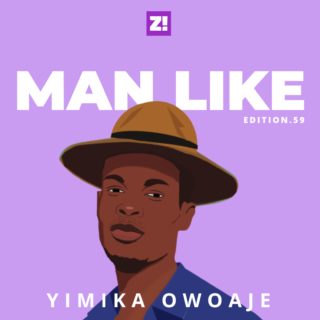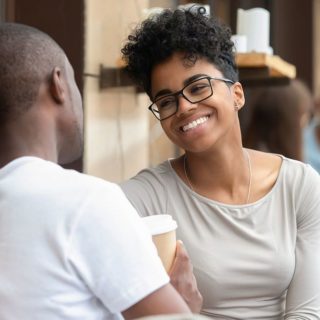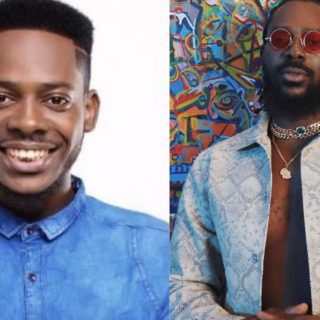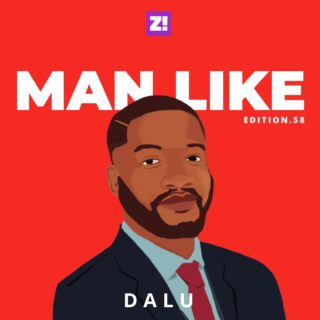What does it mean to be a man? Surely, it’s not one thing. It’s a series of little moments that add up. Man Like is a weekly Zikoko series documenting these moments to see how it adds up. It’s a series for men by men, talking about men’s issues. We try to understand what it means to “be a man” from the perspective of the subject of the week.
Check back every Sunday by 12 pm for new stories in the Man Like series. If you’d like to be featured or you know anyone that would be perfect for this, kindly send an email.
Today’s “Man Like” is Imoh Umoren, an indie filmmaker. He talks about losing both his parents at the age of 15, surviving a tough divorce and fathering his nephew and his son.
When did you realise you were a man?
When my mum died when I was 13 and my dad followed at 15.
Before then, growing up had been fun but religious. My mum was a university lecturer while my father was a businessman. My mum made me read a lot of books from the library to keep me out of trouble. Then my parents died.
After they died, my siblings and I grew up rough and learned things the hard way. We had to live with relatives who weren’t the best people to grow up with and adjust to a certain lifestyle we weren’t used to. You can’t complain about things to your relatives the way you would with your parents. They didn’t take kindly to rebellion. I remember one argument I had with my aunt which led to her throwing me out of the house when I was in the university.
I was quite rebellious. I think a lot of it came from losing my parents and not knowing how to deal with grief. Our society doesn’t treat grief properly. I didn’t know how to deal with it and my relatives didn’t either. So I became a very cold kid.
How did you deal with the grief, eventually?
Did I really deal with it? I don’t think so. Now that I’m an adult, I still struggle with it because I later lost my sister and brother within three months of each other in 2010.
I’m sorry.
It’s life. You just deal with it. God gives his toughest battles to his strongest soldiers.
At what point did you realise you were responsible for yourself?
I got my first apartment when I was 16 from money I got working with my cousins. I realised I had to make money and stop depending on my relatives, so I talked to some cousins . My cousins in Port Harcourt used to drill boreholes, lay interlocking stones and other construction jobs. I’d help them out at the sites and they’d pay me. But my biggest break came by chance. I was in a bar having a drink when I overheard two South Korean expatriates talking about how they needed to drill some boreholes for their company. I seized the opportunity and jumped into the conversation, telling them I drilled boreholes. They asked me to send a cost quotation the next morning. Mind you, I had never drilled a borehole by myself.
I ran to my cousin, Alex, and told him everything. He helped me draw up a cost quotation and followed me there, though I fronted as the “main guy”. We landed the contract and I got the lion’s share of the proceeds. That was how I made my first million at 18.
How did you get into filmmaking?
Growing up, my mom used to make me read a ton of books. I also watched sitcoms like Cheers and decided I wanted to be a sitcom writer. I wrote a few scripts and somehow that evolved into me directing. I did a course on television and film and that cemented me as a director and producer. I made my first film in 2009. It was called Lemon Green. I was 26.
There weren’t a lot of experts in Nigeria producing shows, so there was a demand for Nigeria TV producers. I produced an MTV show, Malta Guinness Street Dance and a bunch of other shows.
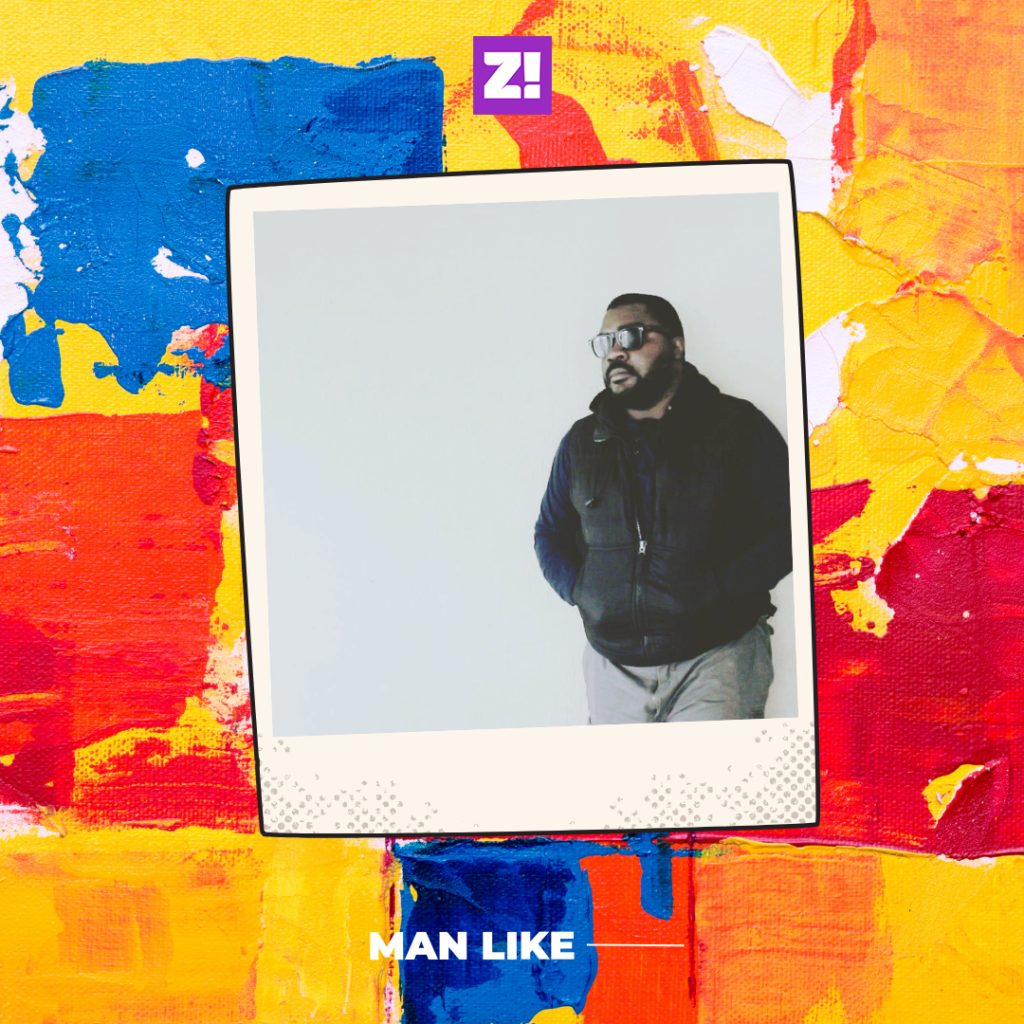
What was your relationship with your dad like before he passed?
He had a heart attack when I was 15. We weren’t very cool because I think I reminded my dad too much of him — stubborn and headstrong. We also looked very much alike and talked the same way.
My mother’s family were more well-to-do than my father’s family. He was a tough guy who roughed it up and single-handedly made his wealth. He always felt some type of way so he was constantly trying to prove himself and get some respect. There’s a certain disdain for people with new money. People will still ask you, “Who is your father?” No matter how successful you are.
I wasn’t cool with my dad. Perhaps because I looked just like him, he used to talk and treat me like I was an adult. Still, I regret that I wasn’t able to spend enough time with him. I think the cold aloofness comes from the tough upbringing men went through in his generation. So perhaps I shouldn’t judge him too harshly. He had his odd ways of showing affection, like telling me to come and sit beside him or give me a piece of meat from his plate.
How did you handle your mum’s passing?
Oh man, I was broken. I didn’t speak for three days.She had been dealing with diabetes, and we knew she was dying. On the day she died, I was coming back from school with my siblings. I felt something strike me and I fell. Immediately, I knew something had happened and I told my siblings, “Mum is dead.” We continued home in silence, and the news was broken to us by an uncle.
My religious faith was affected by her passing, which I think she saw coming. Before she died, she asked me, “If I die, what are you going to do about your faith?” We had prayed and prayed and she wasn’t getting any better, so I didn’t even know what to believe in anymore. After she died, there was a disconnect from God and everything else. I just went cold.
How’s your relationship with your son different from the one you have with your dad?
My son will be seven this year. He lives with his mother in the UK, so most of my parenting is done via video calls. He looks exactly like me and I’m so proud of that. Sometimes, when he’s frustrated, he reacts the exact same way I would.
Tell me about getting married.
We were married for about three years before we split. We grew up together and were very tight friends before we got married.
What went wrong?
There’s enough blame to go around but on my part, I think I was too hyper-focused on my work to pay much attention to anything else, including her. Things deteriorated and the marriage ended. We’re still very good friends..
There’s a mentality among African fathers that once you’re providing for your family, that should be enough. When we don’t provide, we feel like we’re not responsible enough or deserving of love.
I didn’t know the importance of spending quality time with the people who loved me. I’m learning now that providing for the family, as important as it is, isn’t all there is to be a husband and a father. Paying for family vacations or buying new cars are important, but so is making time for your loved ones.
I had always dreamed of having my family. So it was a rude shock because I thought everything was going great till it all came crashing down on me. When we got divorced, I became suicidal.
I think people need to cut men some slack; we’re working so hard trying to make a good life for the family.
How did you handle the divorce?
Man, I was devastated. After the marriage ended, I lived in a hotel for a year, talking to myself. I was barely functioning. I loved her very much. I wished it didn’t happen. I thought my life was over at that point. My work suffered and I had to be laid off from some projects I was working on.
I had always dreamed of having my family. So it was a rude shock because I thought everything was going great till it all came crashing down on me. I was suicidal.
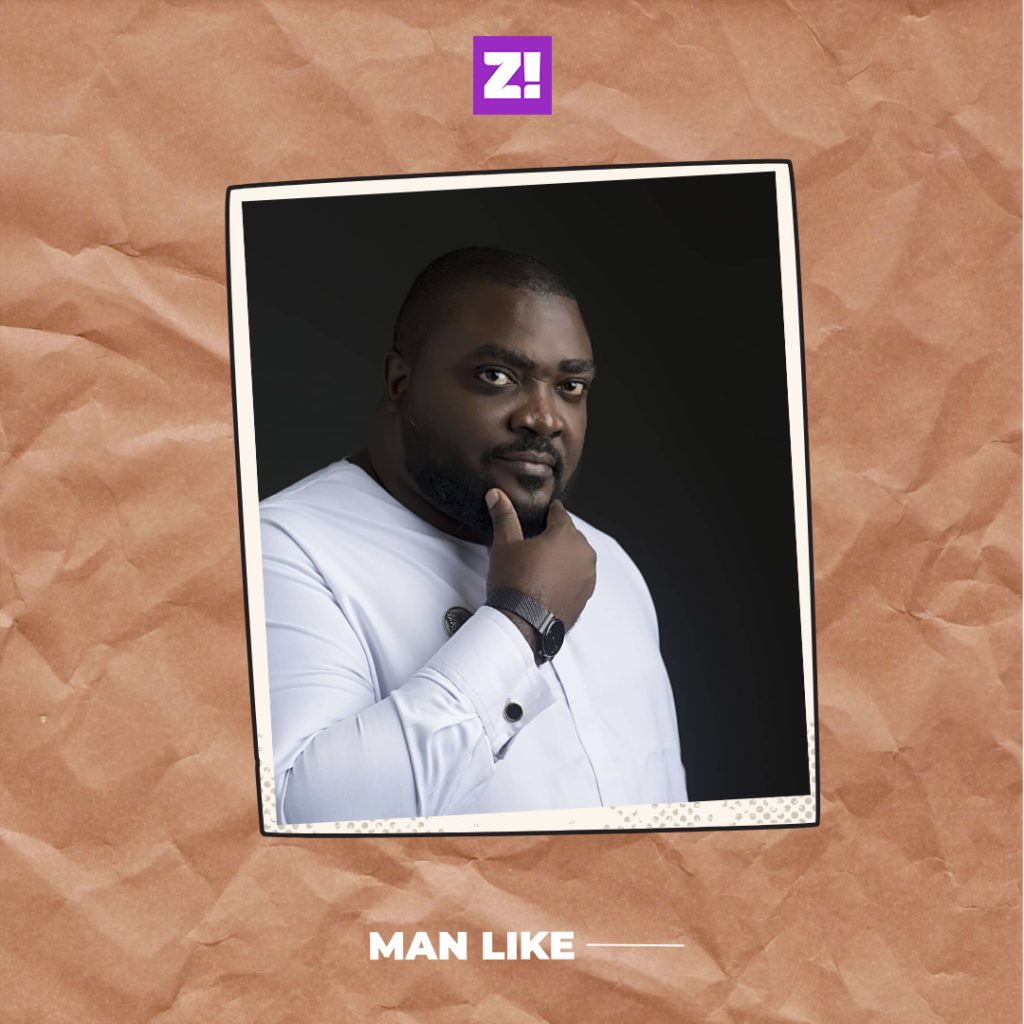
How did you get past it?
It was women, bro. Women got me through the toughest times. I was getting affection from women, being nursed back to life, bringing me food at the hotel and cheering me up.
How did the divorce affect your son?
He was three at the time, so he wasn’t aware of everything going on. It wasn’t until recently that he asked me why I wasn’t married to his mom and why I was always alone. Imagine your own son taking shots at you. It really be your own blood.
LMAO. What do you tell him?
I tell him to focus on his dinosaurs.
LMAO. What’s it like parenting from a distance?
It’s hard as fuck. I wouldn’t recommend it to anyone. I can’t see my son often enough. I can’t help him with his homework as I would love to. Due to COVID-19, I wasn’t able to go see him for almost a year and that was so hard for me. There’s also the disconnect between our accents, him with his UK accent and me with my Nigerian one. We’re always saying “come again?” on our calls because we’re both struggling to hear each other’s accents. Parenting like this isn’t easy but it’s something you must do. I’ve not been the best at it but I try.
Interesting. Tell me about your biggest fear.
My biggest fear would be not doing anything I intend to do with my life. I have really big dreams, and I’ll be very pissed if I die before I fulfil them. I don’t want to die early because there’s so much I want to do. My art is improving as the years go on and dying without getting to that god-level of creativity will pain me o.
You’re really all about your work.
That’s my Achilles heel. I’m obsessed with filmmaking. I was blessed with that talent so that I can improve myself and go further.
How’s your romantic life now?
It’s been a difficult time for me dating. I’m very focused on my work and hardly have time outside of it. Ideally, I’d want to date someone who’s just as ambitious so they don’t feel ignored. Iron sharpeneth iron, not wood.
People want someone who’ll be there all the time, but that’s my weakness. I’m still trying to
work hard and focus on my career, which might take a lot of time and that could lead to different issues. I really can’t say that working all the time is a problem. I was poor. I don’t want to ever experience that again. That’s why I work the way I do. I’m not going to compromise my hustle because of love. When everyone leaves you, all you have left is your hustle. I don’t want my kids to go through what I went through. I want to create a very soft life for them, and if that involves me working my ass off 24/7, so be it.
Do you think you’ll have a family again?
Definitely. This hoeing life is not for me. Do you know how hard it is to talk to ten women a day? It’s too stressful. Seriously though, the whole family-in-the-suburbs-with-the-white-picket-fence idea has always been my dream. Hopefully, I get to settle down soon.

When was the scariest moment of your life?
There are several moments in my life I’ve been scared to shit. When my brother and sister died, I thought I was going to die. There was a time my son was ill during a trip to Portugal. I was scared to death. I’ve already suffered so much loss. I can’t bear anything happening to him. I still get scared sometimes when my nephew, who I’m raising, goes out and doesn’t come back on time.
Oh, you’re raising your nephew? How’s that like?
I’ve been raising him for 10 years and being a father figure is a struggle oh. We always have big fights because he doesn’t pick up his phone. He also has that young teenage arrogance and is just as rebellious as I was when I was his age. Teenagers are just weird, man. I’m worried every time he goes out whether he’s going to come back alive because of the current security climate. I have a constant fear he’s going to get in trouble with the police or something. I’m definitely not looking forward to my son becoming a teenager.
Check back every Sunday by 12 pm for new stories in the Man Like series. If you’d like to be featured or you know anyone that would be perfect for this, kindly send an email.
Are you a man who would like to be interviewed for a Zikoko article? Fill this form and we’ll be in your inbox quicker than you can say “Man Dem.”
Check back every Sunday by 12 pm for new stories in the Man Like series. If you’d like to be featured or you know anyone that would be perfect for this, kindly send an email.
COMPONENT NOT FOUND: donation
